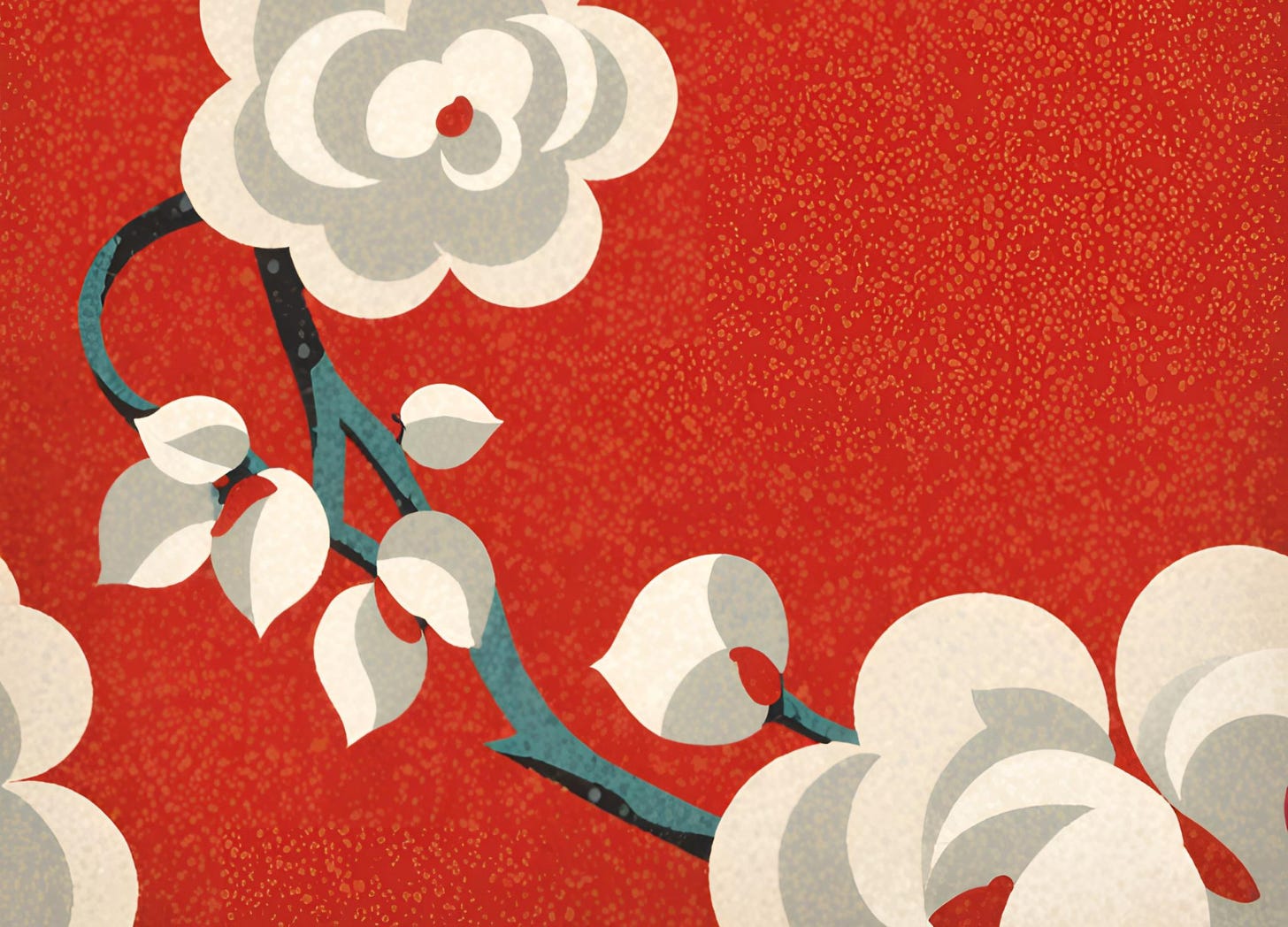High level corruption in the PLA
...and Xinjiang forced labour cotton enquiry reopened; CCP propaganda in the UK
Hello everyone, and welcome to the second edition of Observing China. It’s General Election week here in the United Kingdom (UK), and the results may shape our diplomatic strategies for years to come. The anticipation in Westminster is palpable. Can you think of a better time to zoom out to the bigger picture and look at what’s happening with the People’s Republic of China (PRC)? Me neither. Let’s go:
On 27th June 2024, Beijing expelled from the CCP two of its former defence ministers – Li Shangfu (March-October 2023) and his predecessor Wei Fenghe (2018 to 2023) – over allegations of corruption. The announcement that two high-ranking officers have ‘fallen off their horses’ (落马) – the Chinese phrase for being fired for corruption – marks a continuation of General Secretary Xi Jinping’s intensified anti-corruption campaign within the military and efforts to consolidate his personal control over the CCP’s armed forces, the PLA.
1.2 London court ruling reopens investigation into Xinjiang cotton imports
A London court ruled on 27th June 2024 that British authorities must reconsider investigating imports of cotton which are alleged to be produced using slave labour in the PRC’s Xinjiang region. The appeal by the World Uyghur Congress challenged the National Crime Agency’s (NCA) previous decision not to investigate, citing clear evidence of forced labour. The NCA must now reassess its stance on whether Xinjiang cotton constitutes ‘criminal property’.
1.3 South China Sea: Chinese academics urged to ‘construct narratives’ to defend maritime claims
Amid rising tensions with the Philippines over contested territory in the South China Sea, Chinese academics have been urged to engage in ‘narrative construction and discourse building’ to defend the PRC’s maritime claims – though these claims were rejected by the Hague’s Permanent Court of Arbitration in 2016. Emphasising the ‘increasingly arduous battle over public perception and opinion’, Chinese scholars are encouraged to legitimise the PRC’s stance and counter criticism in the international narrative.
1.4 UK-based media outlet connected to CCP propaganda machine
On 27th June 2024, Lingua Sinica reported of connections between a London-based English-language publication called China Minutes (中国时刻) and the CCP’s United Front Work Department. During a Lunar New Year event in London, Mayor Sadiq Khan was photographed holding a copy of the publication, and praised it for its ‘positive role in Sino-British cultural exchange.’ Surely it’s time that CCP state-connected publications are made to disclose their ties to the party’s propaganda apparatus…?
1.5 Chinese authorities can now inspect electronic devices without warrants
As of 1st July 2024, Chinese security authorities have been granted expanded powers to inspect electronic devices, including smartphones and laptops, without warrants. This move reflects Xi’s heightened focus on anti-espionage in the PRC’s national security strategy, and an intent to streamline surveillance processes.
2.1 A recent report by the Centre for Strategic and International Studies (CSIS), ‘Responding to a More Coercive Chinese Coast Guard and a Potential PRC Quarantine of Taiwan’, argues that the increased militarisation of the China Coast Guard (CCG) signals a potential strategy to enforce a quarantine of Taiwan, leveraging widespread misconceptions of the CCG as a civilian entity, to sidestep international backlash.
2.2 On 20th June, the China Strategic Risks Institute’s report ‘Key questions facing the next UK government on China’ charted out the strategic decisions the next government’s ‘China policy’ should address, including those over Chinese Electric Vehicle imports into the UK; the introduction of a potential outbound investment screening regime, and balancing re-engagement with geopolitical tensions such as the oppression of the Uyghur minority in Xinjiang, or the abnegation of civil liberties in Hong Kong.
2.3 In the wake of the 14th Dalai Lama’s recent knee surgery in the United States, The Strategist published a commentary: ‘China must not choose the next Dalai Lama’. Beijing is attempting to influence the selection of the next Dalai Lama – the spiritual leader of Tibet – to install a pro-CCP puppet successor, thereby deepening legitimisation of its control over the region. This piece emphasises the strategic importance of maintaining authentic Tibetan leadership.
Given the upcoming General Election, this section today will revisit actions taken by His Majesty’s (HM) Government towards the PRC in June.
3.1 On 13th June 2024, in coordinated action with Group of Seven (G7) partners, HM Government announced 50 new sanctions on military suppliers and financial institutions supporting the Kremlin’s military-industrial base. Five of these sanctioned entities are Chinese, thereby calling into question the PRC’s alleged commitment to global peace and stability.
3.2 On 14th June 2024, at the G7 press conference, Rishi Sunak, Prime Minister, delivered a statement which reaffirmed the UK’s support for Ukraine. Critically, for the first time, he condemned Beijing’s increasing alignment with authoritarian states and its provision of dual-use and defence-related equipment to Russia. In his words: ‘The message is clear: if you prop up Russia’s war economy, prolonging this illegal war, you will pay a price.’
4.1 On 24th June 2024, Zheng Zeguang (郑泽光), Chinese Ambassador to the United Kingdom, met with Julian Fisher, Chair of the British Chamber of Commerce in China, to discuss UK-PRC economic and trade relations.
The embassy reported that:
China will continue sharing new cooperation opportunities with businesses from the UK and other countries and expand new areas of collaboration. It is hoped that the British Chamber of Commerce in China will continue to play its role as a bridge for the sustained and healthy development of China-UK economic and trade relations.
4.2 At an event hosted by Beijing to Britain two days later, on 26th June, Fisher urged HM Government to ‘take the heat out of the discussion’ about the PRC. Fisher argued that language such as ‘de-risking’ demonstrates a lack of empathy and consideration towards the Chinese government and its people – and that such language could be perceived as hostile, thus affecting British businesses operating in the PRC. This is myopic, and a tired assumption. Our previous research has found that such fears are overblown. In any case, its crucial to ensure that national interests are not overshadowed by private commercial interests.
4.3 On 27th June 2024, the PRC’s Politburo announced that the Third Plenum of the 20th Central Committee of the CCP will be held between July 15th and July 18th in Beijing.
会议强调,进一步全面深化改革的总目标是继续完善和发展中国特色社会主义制度,推进国家治理体系和治理能力现代化。到二〇三五年,全面建成高水平社会主义市场经济体制,中国特色社会主义制度更加完善,基本实现国家治理体系和治理能力现代化,基本实现社会主义现代化,为到本世纪中叶全面建成社会主义现代化强国奠定坚实基础。
In English:
The meeting emphasised that the overarching goal of further deepening reforms is to continuously improve and develop the system of socialism with Chinese characteristics, and to advance the modernisation of the national governance system and governance capacity. By 2035, a high-level socialist market economy system will be fully established, the socialist system with Chinese characteristics will be further improved, the basic realisation of the modernisation of the national governance system and governance capacity will be achieved, laying a solid foundation for building a modern socialist country by the middle of this century.
Gray Sergeant, Research Fellow on the Indo-Pacific at the Council on Geostrategy, writes:
When two PRC nationals died in the waters around Kinmen this February, Beijing saw an opportunity. Chinese officials quickly announced that ‘there is no such thing as “prohibited or restricted waters”’ around Taiwan’s offshore islands and the CCG began sporadically entering these waters. As I wrote in The Spectator when all this began: ‘when Beijing says a boundary does not exist, it demonstrates it with actions.’
The new normal in Kinmen continues. Only last week, Taiwan’s coast guard dispatched patrol boats in response to four CCG vessels entering the islands’ restricted waters. Wellington Koo, the country’s Defence Minister, has also warned that contingency measures would be taken in response to incursions by Chinese military vessels.
Little has been said about these activities in Washington, let alone Westminster. It is worth keeping an eye on developments around Kinmen – after all, Taiwan’s offshore islands are no stranger to crises.
Thanks for reading, and thank you so much to the people who have already kindly pledged their support! For those of you who are craving an escape from domestic politics on Thursday, check back in at lunchtime for more China-related news and views.
If you would like to explore any of the Council on Geostrategy’s PRC-focused research papers, click here to visit the China Observatory.









